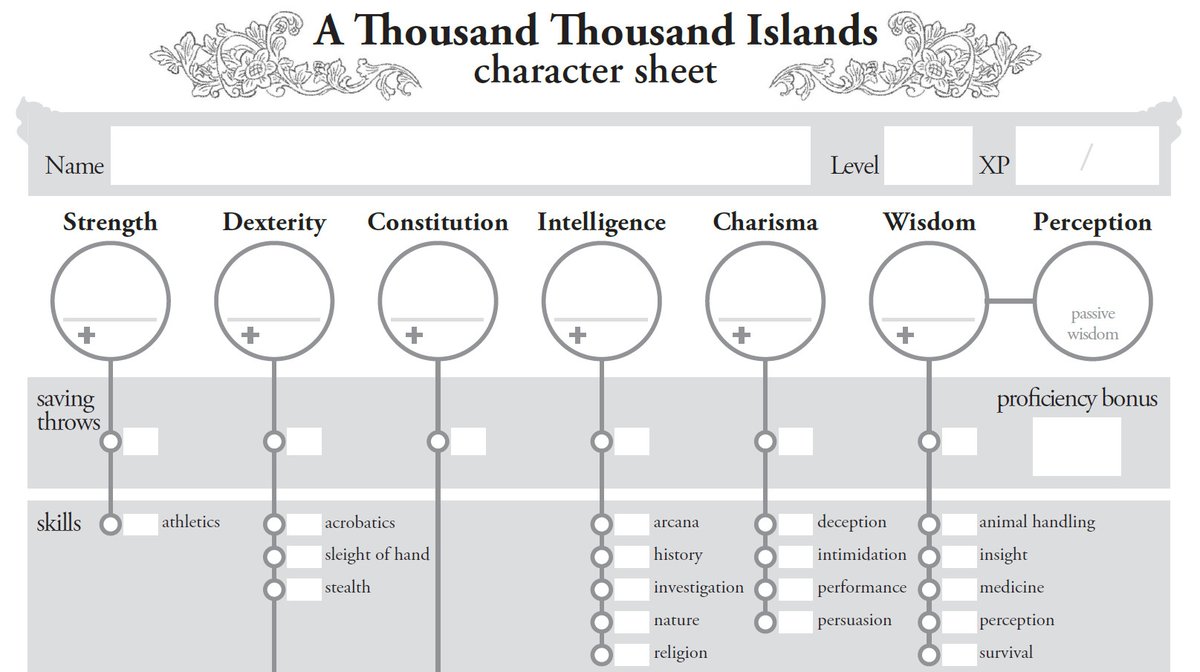
🦋HOUSE RULES FOR A THOUSAND THOUSAND ISLANDS🦋
Some light hacks of 5E for #AThousandThousandIslands. This is basically the first time we've thought about RPG-system stuff for the zines.
Yeah yeah, it's D&D -but hey, *I* play D&D, okay?
athousandthousandislands.com/download-5e-ho…
1/
Some light hacks of 5E for #AThousandThousandIslands. This is basically the first time we've thought about RPG-system stuff for the zines.
Yeah yeah, it's D&D -but hey, *I* play D&D, okay?
athousandthousandislands.com/download-5e-ho…
1/
I'm pleased with the tweaks to xp and skills. (These may seem like trivialities, but I'm the opposite of a rules-design guy, so ...)
Also: Mun Kao made a character sheet, inspired by the flow-chart-y excellence of #MothershipRPG . (Note the "Allies & Pets" column!)
2/

Also: Mun Kao made a character sheet, inspired by the flow-chart-y excellence of #MothershipRPG . (Note the "Allies & Pets" column!)
2/


Also: remember that demon hunter who fell in love with one of their targets?
Here they are, as a D&D character class!
(I wrote most of their abilities / powers in natural language, so adapting them to any other ruleset *should* be painless?)
athousandthousandislands.com/download-demon…
3/
Here they are, as a D&D character class!
(I wrote most of their abilities / powers in natural language, so adapting them to any other ruleset *should* be painless?)
athousandthousandislands.com/download-demon…
3/
BTW: the ATTI website now has a blog. Our plan is to use this blog to post more in-depth process and research notes for our zines;
Plus free downloads: like the above hacks and character classes; or pamphlet adventures.
athousandthousandislands.com/blog/
4/

Plus free downloads: like the above hacks and character classes; or pamphlet adventures.
athousandthousandislands.com/blog/
4/


Also also also:
🐴RESTOCK ALERT🐴
Individual copies of NGELALANGKA and DRAWINGS PART TWO, previously lost in shipping limbo, are now available for purchase on the #AThousandThousandIslands webstore:
athousandthousandislands.com/product/ngelal…
athousandthousandislands.com/product/drawin…
5/5
🐴RESTOCK ALERT🐴
Individual copies of NGELALANGKA and DRAWINGS PART TWO, previously lost in shipping limbo, are now available for purchase on the #AThousandThousandIslands webstore:
athousandthousandislands.com/product/ngelal…
athousandthousandislands.com/product/drawin…
5/5
• • •
Missing some Tweet in this thread? You can try to
force a refresh





